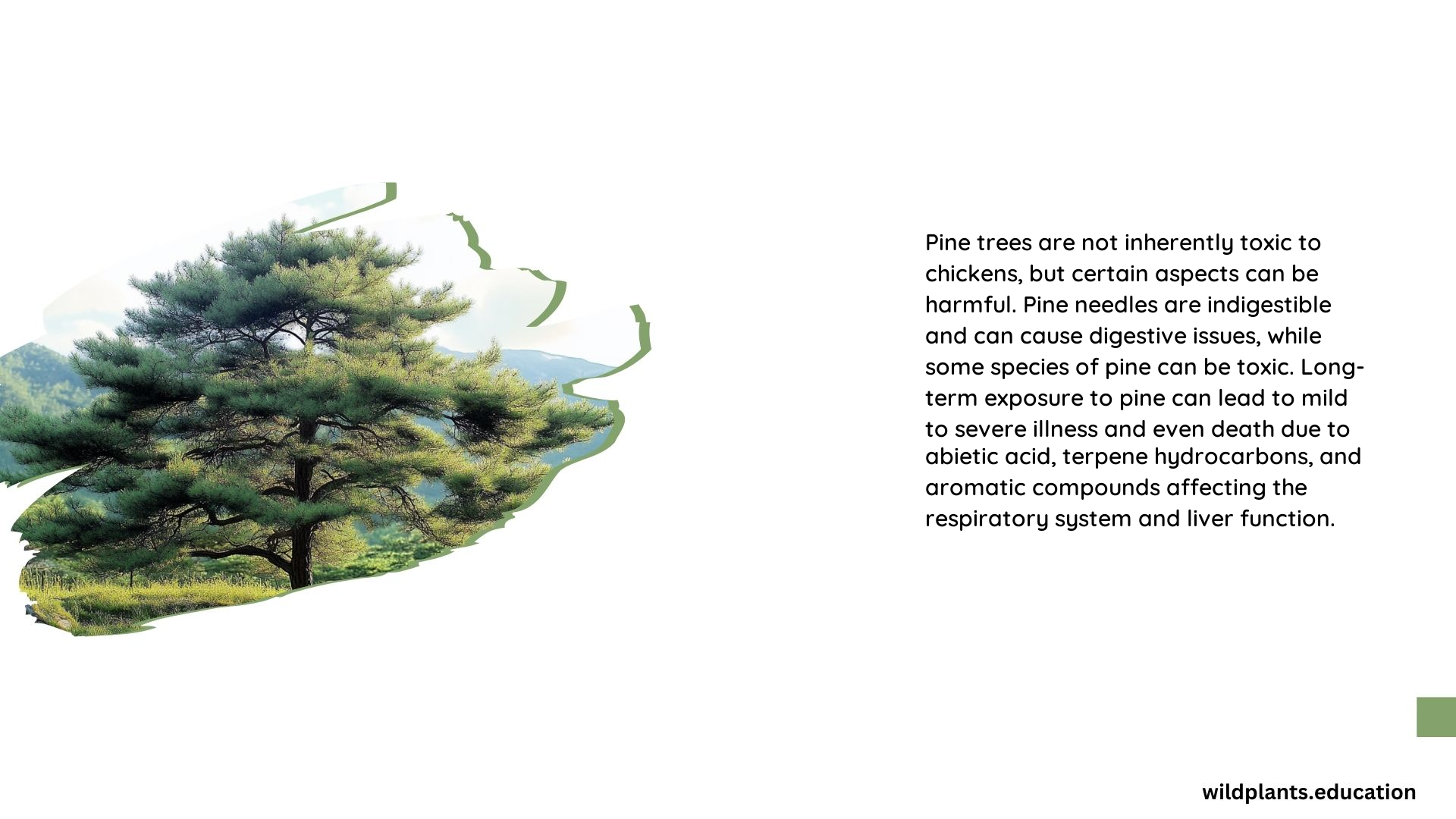Pine trees are generally not toxic to chickens, but certain parts of the tree can cause issues if ingested in large quantities. The main toxic compounds in pine trees are phenols, which can cause digestive problems and other health issues in chickens.
What are the Symptoms of Pine Tree Toxicity in Chickens?

- Excessive drooling
- Nausea and vomiting
- Abdominal pain and bloating
- Weakness
- Behavioral changes
- Dehydration and loss of appetite
- Neurological problems and miscarriages (in livestock)
Are Pine Needles Safe for Chickens to Eat?

Pine needles are not recommended as a food source for chickens. They are tough and fibrous, making them difficult to digest, and can cause physical harm if ingested in large quantities. Pine needles contain phenols, which are toxic to chickens in large amounts.
Nutritional Content of Pine Needles
Pine needles contain phenols, which are toxic to chickens in large amounts.
Potential Health Risks of Consuming Pine Needles
- Digestive issues
- Physical harm from sharp needles
- Toxicity from phenols
Recommended Quantities for Safe Consumption
It is not recommended to feed pine needles to chickens due to their potential toxicity and digestive issues.
Can Pine Trees Be Used as a Healthy Snack for Chickens?
While some parts of pine trees, like bark and cones, can be used as snacks, they must be prepared properly to avoid toxicity. The bark and cones should be dried and processed to remove any toxic compounds.
Preparation Methods for Pine Tree Parts
- Drying and processing bark and cones to remove toxic compounds
- Ensuring proper identification of pine species to avoid toxic varieties
Nutritional Benefits of Pine Tree Parts
- Pine bark and cones can provide fiber and other nutrients if prepared properly.
Is Pine Bedding Toxic to Chickens?
Pine bedding, such as pine shavings, can be toxic to chickens if not properly treated and maintained. The main concerns are respiratory issues from the sap and potential chemical treatments used on the pine shavings.
Potential Health Risks of Pine Bedding
- Respiratory issues from sap
- Toxicity from chemical treatments
Alternative Bedding Options
- Other natural bedding materials like straw or hay
- Ensuring proper ventilation and cleaning of the coop to minimize respiratory issues
